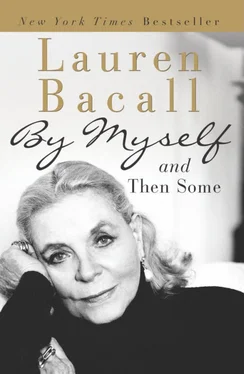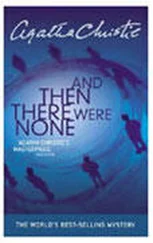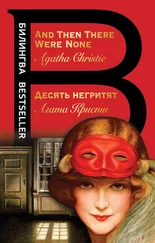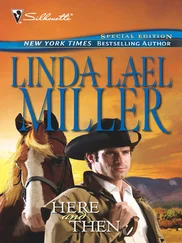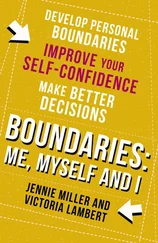I stopped at the stage manager’s desk after thanking them all profusely and telling them I’d never let them down. He took my address and phone number again, said he’d get in touch with me about rehearsals, wardrobe, etc., and did I have an agent? An agent – what was that? I knew nothing about actors’ agents then – they were not considered as important for beginners as they are now.
I guess I walked out of the stage door, I really don’t remember. I immediately felt I had an identity, this was my theatre, we would probably rehearse here. I knew absolutely nothing about rehearsal pay. out-of-town salary – I signed on at minimum, which was then fifty dollars a week.
It had to be Walgreen’s before I took the Eighth Avenue bus and headed for home. Just to see if anyone was there, Fred maybe. No one was. Wait till I told Mother and Grandma. They would be thrilled. Well, Mother would be. Grandma would be happy I had a job so I could help Mother with expenses, but she didn’t put much store in acting as a profession. Questionable people, actors – unreliable, immoral, all the obvious feelings and reactions to a world she had never been exposed to and didn’t understand. But Mother never faltered in her encouragement of me and belief that I could succeed.
As soon as I got home. I rushed to the phone to call Betty Kalb. I told her every detail, every nuance in Kaufman’s dialogue, Max Gordon’s. I would tell it many times over, never tiring of the moment, the magic moment, when they said, ‘You’ve got the part.’ Life could be good, couldn’t it! The elation that coursed through my entire body made me understand what being five feet off the ground truly felt like. Was there anything that could match the joy of that day?
At last Mother came home from work. I threw my arms around her, sat her down, and told her every syllable that had passed anybody’s lips that day. Mother was not one to jump up and down – she was sane, and years of disappointments and hard work had taught her to close in rather than open out. But she was happy for me, she wanted me to have it all and knew that I could and would. That I could fulfill that promise for her meant everything to me, that her faith and support and self-deprivation should not have been in vain. She had had little pleasure in her life except me.
I called Grandma at Charlie and Rosalie’s, where she was staying. Even she was happy, and, as I had guessed, what pleased her most about it was the steady job, the weekly income. What she didn’t know, of course, was that rehearsal pay was less than salary – but she didn’t have to know that.
I went to sleep that night knowing I was an actress, that I knew something and felt something no one else knew or felt. I had it all figured out, of course, how during rehearsals Kaufman and Gordon would see how talented I was, how when we opened I would make a special impression, be singled out, get a leading role in another play, and have my name in lights in no time. Having one’s name in lights was so very important, part of acceptance. Part of ‘Cinderella’ and every other fairy tale we’ve ever read. Also part of having an identity – proof positive of making it. My need for favor, esteem, approbation was inordinate.
T he next day I went to Max Gordon’s office in the Lyceum Theatre, smiling happily as I walked from Eighth Avenue and 44th Street, past Sardi’s – no more selling of Actor’s Cue , I thought – past Walgreen’s to Seventh Avenue with my secret. I suppose I wore an air of confidence unfamiliar in me. Confidence born of approval, of course – that hasn’t changed. The Gordon office was alive with the coming production. I asked if I might have a script. I thanked Gordon again and hugged him in gratitude. He said the contracts would be ready the following week and rehearsals would begin in about two weeks’ time, that I would hear from the stage manager about measurements for costumes, etc.
Of course I had to tell Paul Lukas. ‘See,’ he said, ‘I was right to tell you not to go on the road with Claudia . If you had, this wouldn’t have happened. Now you have an opportunity to work with a great director and producer and really learn something.’
For the next two weeks I spent my time reading and rereading the play, reading my lines to a mirror from all angles and dreaming the hours away as Adele Stanley. I continued my Monday-night hostess job at the Stage Door Canteen, had my coffee in Walgreen’s basement – with Fred Spooner, with Betty Kalb – but my attitude had changed. It was no longer ‘When will I get a part, what will I do if I don’t find something soon, who’s casting what?’ Rather it was ‘I’ve got a part, in a play being produced by Max Gordon, directed by George S. Kaufman.’ Everyone was congratulating me, my actor and usher friends. Buzz Meredith had called me and I told him about it – he was coming to town in a couple of weeks. I wrote Kirk about it. Leo Shull and I agreed that selling Actor’s Cue outside Sardi’s hadn’t been such a dumb thing to do. I didn’t think the time would ever pass until rehearsals began, but it did. Time always does.
I got the call to come to Max Gordon’s office for the signing of the contracts the week of August 8. Rehearsals were to start August 15. My contract was basic Equity minimum, written in language I did not understand then and do not understand now. I trusted Max Gordon and I was right. He was one of the few producers I have ever known who told the truth and who cared about quality. I gave my copy of the contract to my Uncle Jack, who kept it in his files for me. It promised me whatever the going rate for rehearsal was at the time, fifty dollars per week when we went out of town, and minimum daily living expenses on the road. We were to open in Wilmington, Delaware, on September 18, play one preview and four performances; then the Colonial Theater in Washington, D.C., for two weeks and the Wilbur in Boston for two, then the Big Street – Broadway.
On the first day of rehearsal I was a wreck. Christ, I had the part, why was I so damn nervous? But I felt terrific at the start of the day. At the stage door of the Lyceum Theatre, the familiar face of the stage manager. New scripts were passed out, as there had been some changes. I saw Joyce Gates and Jacqueline Gately; we were all introduced to Dorothy Peterson, who played Mrs Ladd, the professor’s wife; to Sam Jaffe, the star. George Kaufman was onstage, Arthur Sheekman and the other authors, Ruth and Augustus Goetz, were onstage, Max Gordon was onstage. Chairs were placed along three sides of two long tables, where we were all told to sit. Kaufman welcomed us, told us we would just read through the play today, become familiar with one another and the parts we were playing, and tomorrow we’d start moving around. So the reading began. I kept taking deep breaths, telling myself to be calm, face buried in my script, thinking of everything but the character I was playing, trying not to shake or at least not to show that I was and praying that my voice would not quiver when the time came. The pros seemed very much in control, started to mark their scripts. Even at this reading there was a suggestion of what their characters would be like. My first cue came and a sound came out, not a true vocal sound, a totally forgettable sound. The other girls didn’t sound like that. I was shaking so, I felt sick. I kept my head down, didn’t dare look in the direction of Kaufman, the authors, or even the other actors. Well, it had to get better, God knows I couldn’t sound worse. We got through the first act, took a ten-minute break, the beginning of coffee in paper cups. I started then as I’ve continued all through my life – telling everyone how nervous I was, hoping that talking about it would make it go away. It doesn’t. It makes it worse. Later you discover that everyone is nervous. All actors are terrified – they just learn how to control it.
Читать дальше
